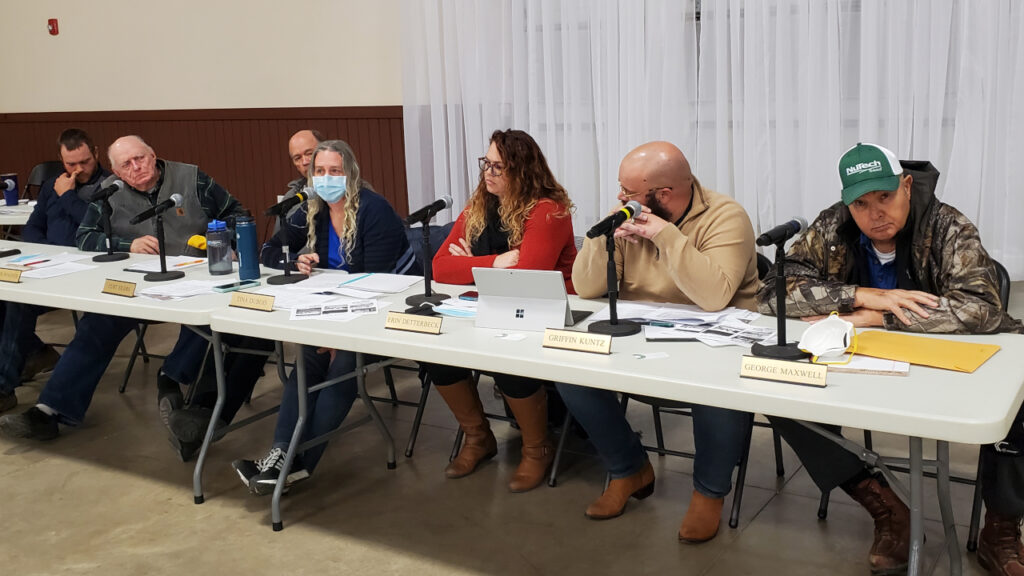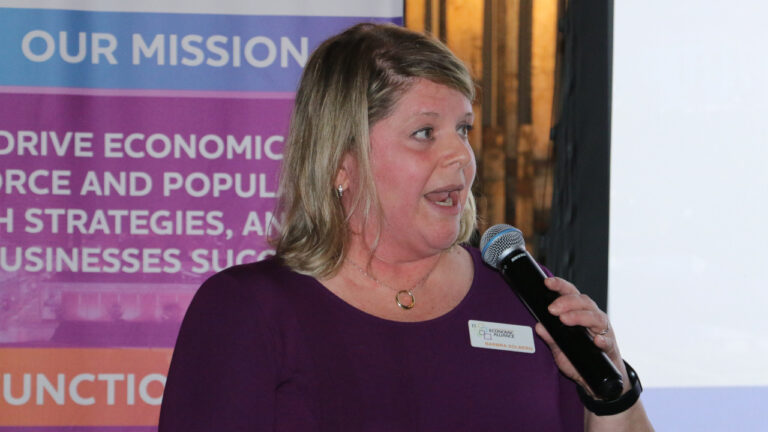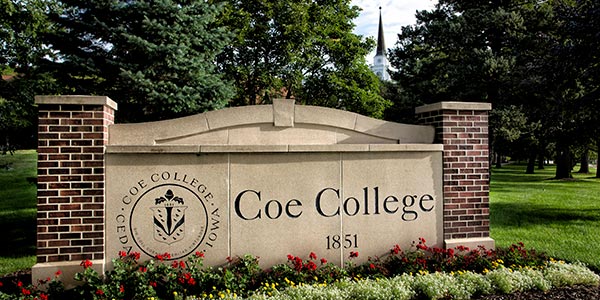It’s quite possible that an industrial-scale solar project will eventually be sited somewhere in Linn County.
It’s also quite possible that the first such project in the county won’t be located near Coggon.
The Linn County Planning and Zoning Commission voted 6-1 Nov. 29 to recommend denial of a rezoning request for an industrial-scale solar project in the northwest portion of Linn County.
The commission’s recommendation, which is not binding, will be forwarded to the Linn County Board of Supervisors, which is tentatively slated to take formal action on the rezoning request at a Dec. 13 meeting.
The rezoning was requested by Coggon Solar, an investor group led by Boise, Idaho-based Clenera Energy. Clenera operates 25 large-scale solar projects across the United States, including a 127-megawatt project near Wapello, in Louisa County, that began generating power in spring 2021.
In this case, Clenera proposed a 750-acre solar installation on largely agricultural property just west of Coggon in northern Linn County, which would mark the first industrial-scale solar project in the county.
As proposed, the project would generate an estimated 100 megawatts of electrical power and involve installation of approximately 325,000 solar panels. Under the plan, submitted to Linn County officials July 9, Clenera would sell generated power to the Central Iowa Power Cooperative (CIPCO) under a 20-year power-purchase agreement, similar to an agreement already in place with the Wapello solar project. If installed, the project would have a total projected production life of about 35 years.
The commission’s decision came at the end of a sometimes contentious 3 ½ hour meeting held at the Linn County Fairgrounds in Central City. An estimated 70 area residents attended the meeting, with more participants online. Clenera representatives were also in attendance to present their plans for consideration.
Commission members heard from 26 speakers, most of whom opposed the plan. Among other concerns, speakers mentioned installing the panels on productive agricultural land, taking that land out of production for up to 35 years; the rights of neighboring and adjoining property owners and residents; environmental impacts; potential concerns if a fire were to occur on the site; and responsibility for damage to the property and area from potential high-wind weather events.
“I’m not against solar,” William Rogan of Troy Mills, who identified himself as a non-participating landowner near the proposed project site, told commission members. “This is just the wrong place for it. This is agricultural land.”
According to information presented at the meeting by Linn County Planning and Development director Charlie Nichols, the land proposed for the Coggon Solar project has an average per-acre Corn Suitability Rating (CSR) of 73.76, well above the 65 CSR rating defined as high-quality ag production land in the county’s 2013 comprehensive plan.
“We as a society by 2050 have to increase our food production by 70%,” Mr. Rogan said. “We are essentially shooting ourselves in the foot as a community, as a society, by taking agricultural land out of the mix for the next 35 years or more.”
Laura Robinson of Coggon challenged many of the conclusions reached in a report on the project by Linn County Planning and Zoning staffers, including assertions that the project would diversify economic development in the area, provide employment opportunities during construction and encourage a “supportive environment for existing and new businesses.”
“Hundreds of thousands of solar panels is not agriculture,” she said. “It’s nothing more than the industrialization of Linn County. This absolutely endangers Linn County agriculture.”
Tom Robinson of Coggon also asked the commission to provide assurances that any field drainage tiles damaged during the installation process would be remedied without expense to property owners, citing a dispute with CIPCO regarding previous drainage tile issues that he said remains unresolved.
Mr. Nichols addressed the concern, indicating that if the project were to proceed, Linn County’s Board of Adjustment would require a performance bond or escrow account to guarantee that any drainage issues would be fixed “in a reasonable amount of time.”
Ellis Vann of Cedar Rapids expressed concerns regarding financial responsibility for the eventual decommissioning of the site. “I’m curious about what Linn County is doing to make sure of those financial assurances,” he said. “Where I used to work, we had to put money aside into a decommissioning fund, and there were actually dollars in it, so when that facility was sold, the funds for decommissioning went with the facility itself.”
In response, Mr. Nichols said later in the meeting that if the county were to approve the rezoning request, a clause should be included to guarantee coverage of decommissioning costs.
A few spoke in support of the project at the Nov. 29 meeting, including Joel Payton of Winthrop, one of the area landowners who signed an agreement with Coggon Solar to install solar panels on his property. Mr. Payton said he’s has positive interactions with Clenera representatives at every step of their negotiations.
“Clenera has been nothing but professional to work with,” he said. “They want to do what’s best for our ground and have been receptive to our concerns. After touring the solar farm in Wapello that Clenera also owns, and talking to community members from Wapello, it is clear they want to do the right thing. Hearing these comments about Clenera in my personal experience reassured me that they’re working and ready to go … I believe a landowner should be able to decide what they do with their property.”
When contacted after the Nov. 29 meeting, Clenera officials declined to comment on the decision or their future plans, pending a final decision from the full board of supervisors.
Another industrial-scale solar project is expected to be presented to Linn County officials soon. Alliant Energy announced in early November that it intends to acquire the first two phases of solar energy production, plus a battery storage component for generated power, from subsidiaries of NextEra Energy Resources, which is planning an industrial-scale solar installation at the site of the now-shuttered Duane Arnold Energy Center nuclear plant near Palo.
NextEra officials have said they hope to have a project application filed with Linn County by the end of this year.









